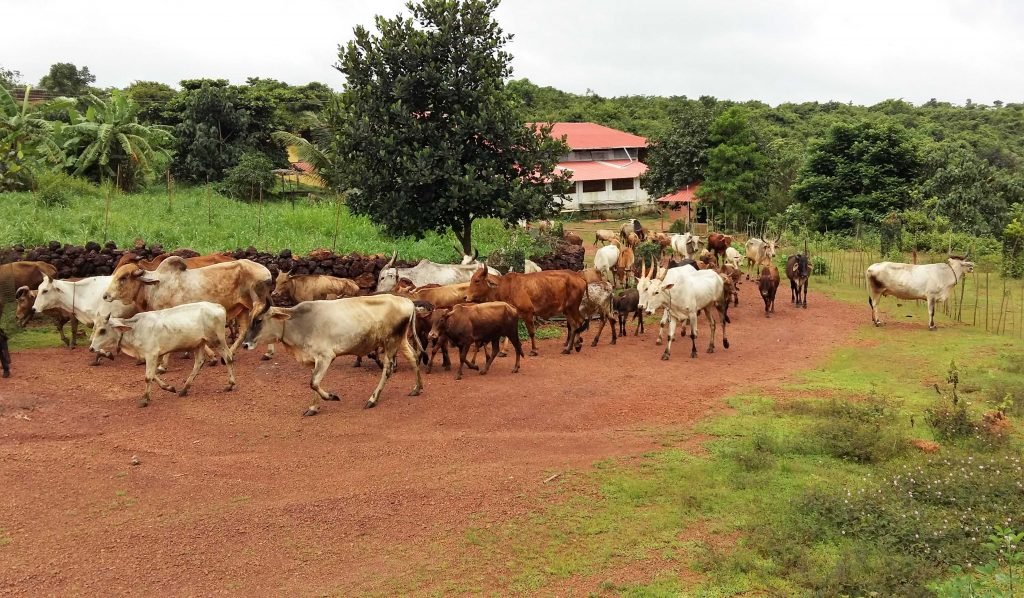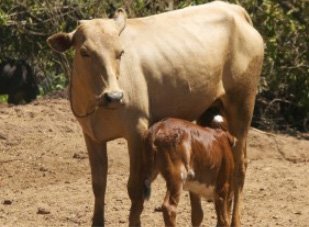Goshala


What is Goshala?
Goshala can be defined as the protective shelter for the cattle. This concept has a long history in India and dates back to 1880s. The first goshala in India was established in Rewari in Haryana by Rao Yudhishter Singh Yadav. The concept has got its origin in the noble intention of protecting the cattle at their old age since Indian culture treats them equivalent to human beings and the cow is considered as the Universal Mother. The first society for the protection of cow, Gaurakshini Sabha was established in Punjab during 1882. All the Hindu rulers of erstwhile Princely states across India worshipped and protected cows and goshalas were run by them. During later years, several trusts, societies, and NGOs working for the cause of cow protection continued the mission and established many goshalas throughout the country.
The goshalas take care of the cows with real passion and care as most of the organizations running goshalas are with the mission of taking care of the cows with dignity and grace during the last stage of their lives. Adequate nutritious food, clean drinking water, provision for free movement in gated pastures (at least small areas), regular bathing, and cleaning, washing, and disinfection of the pens at regular intervals are the routine care provided by the goshalas for the cattle. Apart from this, regular health check-up of the cows and treatment for ailing individuals through veterinary professionals, preventive measures against contagious diseases, etc. are made available in the goshalas. Above all, the cows are taken care of with a team of passionate caregivers to build an emotional relationship with the cows. Playing music, talking to cows, patting or other physical expressions of compassion make them feel happy and few goshalas practice these approaches as well.
Goshalas in India
According to a 2014 reply in the Parliament, India has about 3,030 goshalas, including 1,325 run by various animal husbandry departments of the states. Since 2014, there is a positive change towards cow protection from the government through policies and fund allocation. According to sources 5.8 billion rupees have been allocated for goshalas by the Indian Government during 2014 -2016. Further, initiatives have been made to sustain the goshalas by commercializing the cow urine and cow dung for various applications also have been made and partially implemented.
Smt. Maneka Gandhi, Union Minister for Women & Child Development and renowned animal rights activist has authored a Manual for Goshalas with the standard operating procedures providing guidelines for the establishment and maintenance of goshalas, on her individual capacity for improving the general conditions of the goshalas.
Goshalas Abroad
Goshalas have been established abroad as well. The UK has one goshala named New Gokul, maintained by the Hare Krishna Temple while the United States has few, such as Gita Nagari Farm and Sanctuary in Pennsylvania, goshala of the International Society for Cow Protection (ISCOWP) and the San Tan Valley Goshala.
What Impact Goshalas Create?
Goshalas facilitate prevention of cruelty against cows at the end of their life and ensure graceful exit for them. They will provide enough source of raw materials for the growing demand for by-products of cows like the urine and dung, extensively used in alternative medicine, agriculture, cosmetics, and other applications.
Help Us Now

Donate to Surabhivana Gaushala to save and protect Indian Cow Breeds.
All donations are exempt under Section 80G of the Income Tax Act, 1961. All donation receipts shall be mailed to the address given by the donor or may be collected in person, at request.
Click the below button to donate through credit cards/debit cards or Net Banking via Razor Pay.
